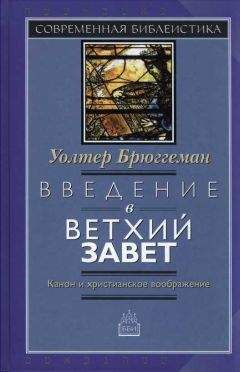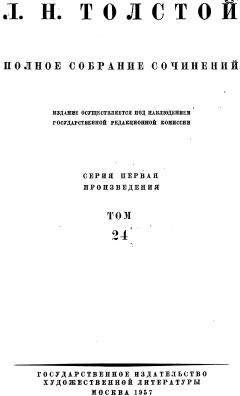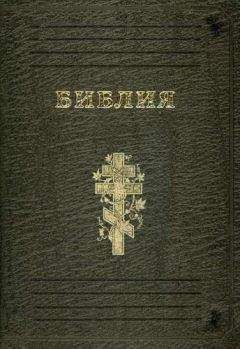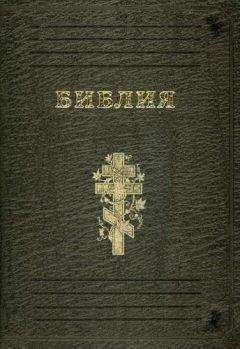Schüssler Fiorenza, Elisabeth. Bread Not Stone: The Challenge of Feminist Biblical Interpretation. Boston: Beacon Press, 1984.
Wisdom Ways: Introducing Feminist Biblical Interpretation. Maryknoll, N.Y: Orbis Books, 2001.
Schwartz, Regina M. The Curse of Cain: The Violent Legacy of Monotheism Chicago: University of Chicago Press, 1997.
Scott, James C. Weapons of the Weak: Everyday Forms of Peasant Resistance. New Haven, Conn.: Yale University Press, 1985.
Domination and the Arts of Resistance: Hidden Transcripts. New Haven, Conn.: Yale University Press, 1990.
Scott, James M. Exile: Old Testament, Jewish, and Christian Conceptions. New York: Brill, 1997.
Seitz, Christopher R. Theology in Conflict: Reactions to the Exile in the Book of Jeremiah. Berlin and New York: De Gruyter, 1989.
Zion's Final Destiny: The Development of the Book of Isaiah: A Reassessment of Isaiah 36–39. Minneapolis: Fortress Press, 1991.
Shapiro, David. « Proverbs ». B: Congregation: Contemporary Writers Read the Jewish Bible, edited by David Rosenberg. San Diego: Harcourt Brace Jovanovich, 1989, p. 313–330.
Shapiro, Harvey. «Joel». В: Congregation: Contemporary Writers Read the Jewish Bible, edited by David Rosenberg. San Diego: Harcourt Brace Jovanovich, 1987, p. xiv, 526.
Sheppard, G. T. «The Epilogue to Qoheleth as Theological Commentary». B: Catholic Biblical Quarterly, 39 (1977), p. 182–189.
Smend, Rudolf. «Das Gesetz und die Volker: Ein Beitrag zur Deuteronomistischem Redaktionsgeschichte». B: Probleme Biblischer Theology; Gerhard von Rad Zum 10. Geburtstag, edited by Hans Walter Wolff. Munich: C. Kaiser, 1971, p. 494–509.
Smith, Daniel L. The Religion of the Landless: The Social Context of the Babylonian Exile. Bloomington, Ind.: Meyer–Stone Books, 1989.
Smith, Morton. Palestinian Parties and Politics That Shaped the Old Testament. 2d ed. London: SCM, 1987.
Smith–Christopher, Daniel L. A Biblical Theology of Exile. Overtures to Biblical Theology. Minneapolis: Fortress Press, 2002.
Soulen, R. Kendall. The God of Israel and Christian Theology. Minneapolis: Fortress Press, 1996.
Stendahl, Krister. «Biblical Theology, Contemporary». B: The Interpreter's Dictionary of the Bible, vol. 1, edited by George Buttrick and Keith Crim. Nashville: Abingdon Press, p. 418–432.
Stern, Philip D. The Biblical herem: A Window on Israel's Religious Experience. Brown Judaic Studies, 211. Atlanta: Scholars Press, 1991.
Stevenson, Kalinda Rose. Vision of Transformation: The Territorial Rhetoric of Ezekiel 40–48. Atlanta: Scholars Press, 1996.
Stone, Michael E. Scriptures, Sects, and Visions: A Profile of Judaism from Ezra to the Jewish Revolts. Philadelphia: Fortress Press, 1980.
Stulman, Louis. Order Amid Chaos: Jeremiah as Symbolic Tapestry. The Biblical Seminar, 57. Sheffield: Sheffield Academic Press, 1998.
Sugirtharajah, R. S. Postcolonial Criticism and Biblical Interpretation. Oxford: Oxford University Press, 2002.
Tarr, Herbert. «Chronicles». B: Congregation: Contemporary Writers Read the Jewish Bible, edited by David Rosenberg. San Diego: Harcourt Brace Jovanovich, 1989, p. 497–512.
Theunissen, Michael. The Other: Studies in the Social Ontology of Husserl, Heidegger, Sartre, and Buber. Studies in Contemporary German Social Thought. Cambridge, Mass.: MIT Press, 1984.
Towner, W. Sibley. Daniel. Interpretation. A Bible Commentary for Teaching and Preaching. Atlanta: John Knox Press, 1984.
Tracy, David. The Analogical Imagination: Christian Theology and the Culture of Pluralism. New York: Crossroad, 1981.
Trible, Phyllis. «Depatriarchalizing in Biblical Interpretation». B: Journal of the American Academy of Religion, 31 (1973), p. 30–48.
God and the Rhetoric of Sexuality. Overtures to Biblical Theology. Philadelphia: Fortress Press, 1978.
«Bringing Miriam out of the Shadows». B: Bible Review, 5 (1989a), p. 14–25.
«Subversive Justice: Tracing the Miriamic Traditions». B: Injustice and the Holy: Essays in Honor of Walter Harrelson, edited by Douglas A. Knight and Peter J. Paris. Atlanta: Scholars Press, 1989b, p. 99–109.
Rhetorical Criticism: Context, Method, and the Book of Jonah. Guides to Biblical Scholarship Old Testament Series. Minneapolis: Fortress Press, 1994.
Voegelin, Eric. Israel and Revelation. Baton Rouge, La.: Louisiana State University Press, 1956.
von Rad, Gerhard. Studies in Deuteronomy. Chicago: H. Regnery, 1953.
Old Testament Theology I: The Theology of Israel's Historical Traditions. Edinburgh: Oliver and Boyd, 1962.
Old Testament Theology II: The Theology of Israel's Prophetic Traditions. Edinburgh: Oliver and Boyd, 1965.
The Problem of the Hexateuch and Other Essays. New York: McGraw–Hill, 1966.
Wisdom in Israel Nashville: Abingdon Press, 1972.
Weems, Renita J. Battered Love: Marriage, Sex, and Violence in the Hebrew Prophets. Overtures to Biblical Theology. Minneapolis: Fortress Press, 1995.
Weinfeld, Moshe. «The Covenant of Grant in the Old Testament and the Ancient Near East». B: Journal of the American Oriental Society, 90 (1970), p. 184–203.
Deuteronomy and the Deuteronomic School Oxford: Clarendon Press, 1972.
Wellhausen, Julius. Prolegomena to the History of Israel Scholars Press Reprints and Translations Series. Atlanta: Scholars Press, 1994.
Westermann, Claus. The Praise of God in the Psalms. Richmond: John Knox Press, 1965.
Basic Forms of Prophetic Speech. Philadelphia: Westminster Press, 1967.
«Role of the Lament in the Theology of the Old Testaments B: Interpretation, 28 (1974), p. 20–38.
The Promises to the Fathers: Studies on the Patriarchal Narratives. Philadelphia: Fortress Press, 1980a.
The Psalms: Structure, Content, and Message. Minneapolis: Augsburg Publishing House, 1980b.
The Structure of the Book of Job: A Form–Critical Analysis. Philadelphia: Fortress Press, 1981.
«Lamentations». B: The Books of the Bible, edited by Bernhard W. Anderson. New York: Scribner's, 1989, p. 303–318.
Lamentations: Issues and Interpretation. Minneapolis: Fortress Press, 1994.
White, Lynn. «The Historical Roots of Our Ecological Crisis». B: Science, 155 (1967), p. 1203–1207.
Whybray, R. N. The Intellectual Tradition in the Old Testament. New York: De Gruyter, 1974.
Wiesel, Elie. «Ezekiel». B: Congregation: Contemporary Writers Read the Jewish Bible, edited by David Rosenberg. San Diego: Harcourt Brace Jovanovich, 1987, p. 167–186.
Wilder, Amos N. «Story and Story–World». B: Interpretation, 37 (1983), p. 353–364.
Williamson, H. G. M. Ezra, Nehemiah. Word Biblical Commentary 16. Waco, Tex.: Word Books, 1985.
Ezra and Nehemiah. Old Testament Guides. Sheffield: Sheffield Academic Press, 1987.
Wilson, Gerald Henry. The Editing of the Hebrew Psalter. Chico, Calif.: Scholars Press, 1985.
Wilson, Robert R. Genealogy and History in the Biblical World. New Haven, Conn.: Yale University Press, 1977.
Prophecy and Society in Ancient Israel Philadelphia: Fortress Press, 1980.
Sociological Approaches to the Old Testament. Guides to Biblical Scholarship Old Testament Guides. Philadelphia: Fortress Press, 1984.
Wink, Walter. John the Baptist in the Gospel Tradition. Eugene, Or.: Wipf and Stock Publishers, 2000.
Wolff, Hans Walter. «Kerygma of the Yahwist». B: Interpretation, 20 (1966), p. 131–158.
«Micah the Moreshite». B: Israelite Wisdom: Theological and Literary Essays in Honor of Samuel Terrien, edited by John G. Gammie et al. Missoula, Mont.: Scholars Press for Union Theological Seminary, 1978, p. 77–84.
«The Kerygma of the Deuteronomic Historical Works*. B: The Vitality of Old Testament Traditions, edited by Walter Brueggemann and Hans Walter Wolff. Atlanta: John Knox Press, 1982, p. 83–100.
Wright, N. Т. Jesus and the Victory of God. Minneapolis: Fortress Press, 1996.
Wybrow, Cameron. The Bible, Baconianism, and Mastery over Nature: The Old Testament and Its Modern Misreading. American University Studies, 112. Series 7, Theology and Religion. New York: P. Lang, 1991.
Yee, Gale A. «The Theology of Creation in Proverbs 8:22–31». B: Creation in the Biblical Traditions, edited by Richard J. Clifford and John Joseph Collins. Washington, D. C: Catholic Biblical Association of America, 1992, p. 85–96.
Yerushalmi, Yosef Hayim. Zakhor, Jewish History and Jewish Memory. The Samuel and Althea Stroum Lectures in Jewish Studies. Seattle: University of Washington Press, 1982.
Yoder, Christine Elizabeth. Wisdom as a Woman of Substance: A Socioeconomic Reading of Proverbs 1–9 and 31:10–31. Berlin and New York: Walter de Gruyter, 2001.
Zimmerli, Walther. «Place and Limit of the Wisdom in the Framework of the Old Testament Theology». B: Scottish Journal of Theology, 17 (1964), p. 146–158.
The Law and the Prophets: A Study of the Meaning of the Old Testament. The James Sprunt Lectures, 1963. Oxford: B. Blackwell, 1965.
Строго говоря, «второканонические» книги — это понятие, более характерное для католичества. Сюда входят, например, Книга Товита, Книга Премудрости Соломона, Книга Премудрости Иисуса, сына Сирахова и некоторые другие. В православный канон они не входят, но считаются полезными для назидания, а потому печатаются в некоторых изданиях Библии. «Апокрифами» эти неканонические/второканонические книги именуются у протестантов. — Прим. ред.
Имеется в виду строчка из унитарианского гимна, написанного в XIX веке Джеймсом Лоуэллом: «Time makes ancient good uncouth» («Время делает старое/прежнее благо устаревшим/отжившим»). — Прим. ред.
Еще до революции эта книга была переведена на русский язык: Ю. Велльгаузен Введение в историю Израиля (пер. Н. М. Никольского). СПб.: 1909. — Прим. ред.
Брюггеман следует пониманию текста, широко принятому в экзегезе, но несколько отличающемуся от синодального перевода. — Прим. пер.
Еврейское слово 'erets («земля»), так же как и русский его эквивалент, имеет несколько значений, для каждого из которых в английском языке используется отдельное слово. — Прим. ред.
В Септуагинте, славянском и русском (Синодальном) переводах Библии эти книги носят название — Первая и Вторая книги Царств и Третья и Четвертая книги Царств соответственно. — Прим. ред.
В Септуагинте, славянском и русском (Синодальном) переводах Библии эти книги носят название — Первая и Вторая книги Паралипоменон. — Прим. ред.
Так автор условно называет составителя книг Ранних Пророков (Ис Нав — 4 Цар), автора «девторономической истории». — Прим. ред.
В Синодальном переводе, вслед за славянским переводом Септуагинты, возникает омонимия имени отца Исайи и одного из малых пророков. В действительности отца Исайи зовут «Амоц». — Прим. ред.




